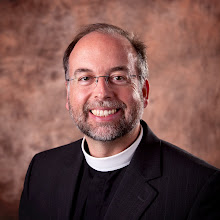Reflection on September 11, 2011
(A Service for Peace)
John 14:27
St. Alban’s Episcopal Church, Waco, Texas
Jesus says to us:
“Peace is my last gift to you, my own peace I now leave with you;
Peace which the world cannot give.”
Ten years ago this morning, I was searching for peace.
I was searching for the peace which the world cannot give.
On September 11, 2001, I was 37 years old with a wife and two small children, all of whom I had just uprooted 4 weeks before.
I had just resigned my position as the CFO of a benefits and trust company.
And a moving van had just recently carried all of our possessions away.
Ten years ago, I was a brand new student at the Virginia Theological Seminary, near Washington, DC.
I had never preached a sermon in my life.
I had never performed a baptism or gone on a hospital visit.
Yet I was searching for peace, the peace which I knew, I knew, that the world could not give me.
On that clear sunny Tuesday morning, a classmate told me that a plane had crashed in New York City.
With other classmates, I huddled around a tv set in the student lounge.
Then a large sonic boom shook the buildings and the windows.
We ran outside, searching the skies, not realizing that we had just heard the Pentagon explosion just a few miles away.
The sound of sirens filled the air and all of us headed into the seminary chapel for prayer and for hymns.
On that day, Susan had students in her classroom with parents who were in the Pentagon.
My sons, who were 10 and 7 at the time, remember being at their classroom desks, feeling the sound of Flight 77 shake the windows.
Desperate to find my peace and to give sacrificially, I drove frantically around Washington, DC, trying to give blood.
I drove down I-395 with my windows down, with the smoke from the Pentagon filling my car.
When I finally got to Susan’s school late that afternoon, I cried.
I cried for two reasons:
God had turned the interior of our lives upside down by calling me to be God’s priest.
And now it seemed that the exterior of our lives was being turned upside down as well - as God had moved our family into the epicenter of this horror.
Yet Jesus says to us:
My peace I give to you.
Peace which the world cannot give.
In the last 10 years, I have found an interior peace that I did not have on September 11, 2001.
In the last 10 years, my marriage has grown stronger and deeper, as I have found great peace through my wonderful wife – my wife who has sacrificed so much for me.
In the last 10 years, my sons, whom many predicted would grow up to be screwed up “preacher’s kids” - are now incredible young men.
In the last 10 years, I have discovered that I am a pretty good priest - who can actually preach a decent sermon, on occasion.
In the last 10 years, I have discovered an inner peace, a peace which our suburban dream house never gave, a peace that my job never gave, a peace that I cannot receive from things.
And this inner peace only comes - from Jesus living within me.
Today I remember the smoke, the sirens, the sonic boom of that September morning.
But most of all today, I give thanks.
I give thanks that Jesus has given me his last gift.
I give thanks that Jesus has given me something that the world cannot give.
I give thanks that Jesus has given me - his peace.
Sunday Reflection: Martha and Mary
10 hours ago
